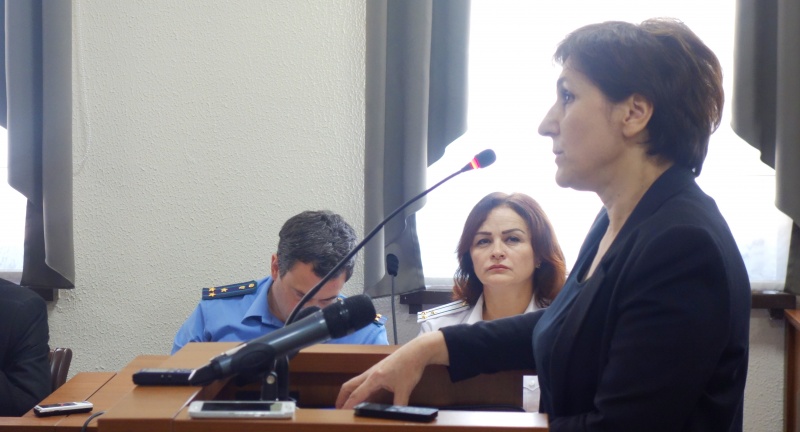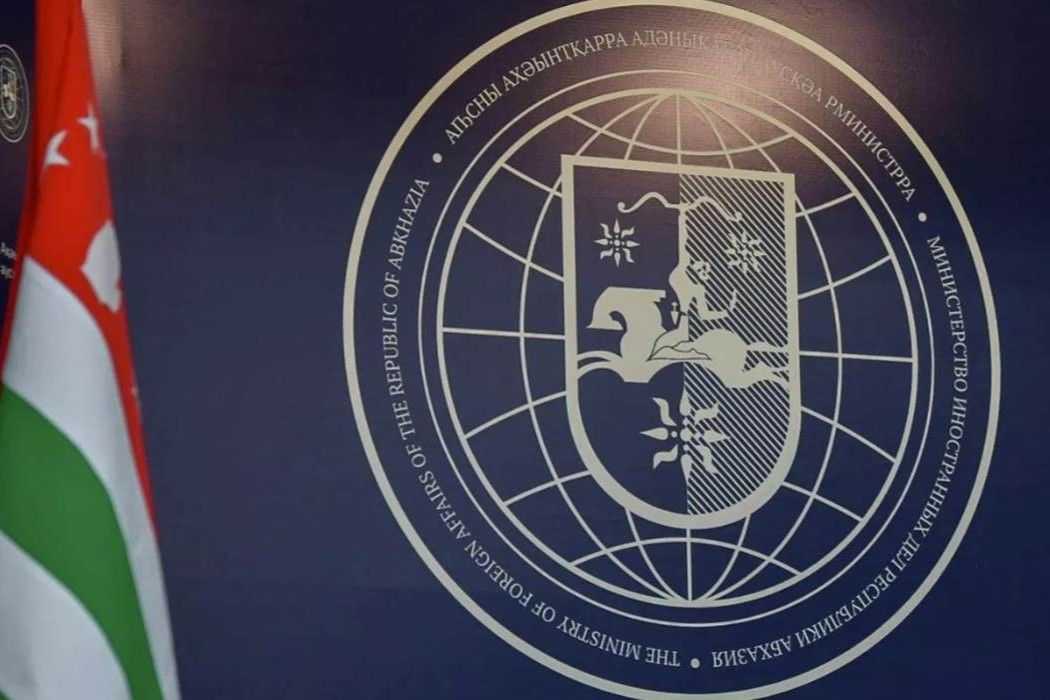

The Abkhazian human rights commissioner, Asida Shakryl, has condemned the treatment of ethnic Georgians from Abkhazia’s easternmost Gali District. A protest was held in Gali after the Abkhazian authorities closed the border with Georgian-controlled territory ‘to prevent the spread of swine flu’.
During a press conference on 29 January, Shakryl said that public outcry in Gali (Gal) ‘could have been avoided’.
She reiterated an earlier position that the Abkhazian authorities should ‘consider the vital needs’ of people in Gali and ‘minimise the negative effects’ of closing the border.
The Abkhazian authorities closed the River Enguri (Ingur) checkpoint, which separates Abkhazia from Tbilisi-controlled territory, on 10 January for a two month period, citing growing reports of an H1N1 outbreak in Georgia.
The checkpoint is the only remaining crossing after Abkhazian authorities closed the other two remaining crossings in March 2017.
On 24 January, Shakryl said that a ‘responsible approach’ would have been to let those in need of medical treatment in Georgian hospitals to continue to cross the border.
She also said the authorities should have informed residents of Gali about the measure beforehand and provided them with serious evidence as to why ‘such a long period’ of quarantine was required.
By taking such an approach, the protests could have been avoided, she said.
‘It’s hard to understand the usefulness of such a measure that bans students studying in Georgian higher educational institutions who came [to Abkhazia] during their New Year’s Eve holidays to visit their parents from crossing the border’, Sharkyl said.
She also criticised the local authorities in Gali on the basis that they must know about the people most vulnerable to the effects of a border closure.
Shakryl, formerly co-director of the Sukhumi (Sukhum)-based rights group the Centre for Humanitarian Programmes, was appointed commissioner for human rights in March 2018.
Protests in Gali
A protest of the closure was held in Gali town on 23 January, 13 days after the quarantine was introduced.
Meeting with protesters at the town’s Palace of Culture, the head of Gali District, Temur Nadaraya, denied claims the closure was ordered by the State Security Service, insisting it was Abkhazia’s chief health officer that ordered it.

Nadaraya assured people that the closure was to protect their families and added that the authorities would not prevent students or seriously ill patients receiving Georgian medical services, such as chemotherapy, from crossing the border.
No dual citizenship with Georgia
In her statement from 24 January, Sharkyl said that the quarantine worsened the situation of Gali’s population by adding to lingering problems regarding their legal status.
She added that the situation in Gali was the result of ‘a lack of depoliticised, differentiated, long-term approaches’ to the Gali, which would have to take into account the ‘complicated history of this region’, including the ‘many effects of the Georgian–Abkhazian war’.
Local TV station Gal TV reported that participants of the 23 January rally also complained about new passport regulations that were recently introduced. They said they were not allowed to prolong the validity of their current ID documents to travel to Tbilisi-controlled territory.
In his address to protesters, Nadaraya said that the new regulations were ‘irreversible’, no matter who was in power in Abkhazia.
‘What you are asking for means the introduction of dual citizenship with Georgia. No politician in Sukhum would agree to this’, Nadaraya said.
The current regulations make it almost impossible for Georgians in Gali District to obtain Abkhazian citizenship, even if they renounce their Georgian citizenship.
In a press conference on 29 January, Shakryl said that the latest legal measures related to identification documents in Abkhazia further ‘alienated’ ethnic Georgians in Gali District from ‘the Abkhazian state’.
She said that some ethnic Georgians in Gali already held expired Abkhazian passports and did not want to have only residence permits, but experienced difficulties in getting their Abkhazian passports renewed.
On 24 January, citing the Passport Department of the Interior Ministry, Abkhazian State Television said that over 12,100 people from Gali had applied for residence permits, compared to 629 who applied for passports.
[Read OC Media’s 2017 report on identity documents in Gali: Georgians in Gali — foreigners in their own land]
For ease of reading, we choose not to use qualifiers such as ‘de facto’, ‘unrecognised’, or ‘partially recognised’ when discussing institutions or political positions within Abkhazia, Nagorno-Karabakh, and South Ossetia. This does not imply a position on their status.







